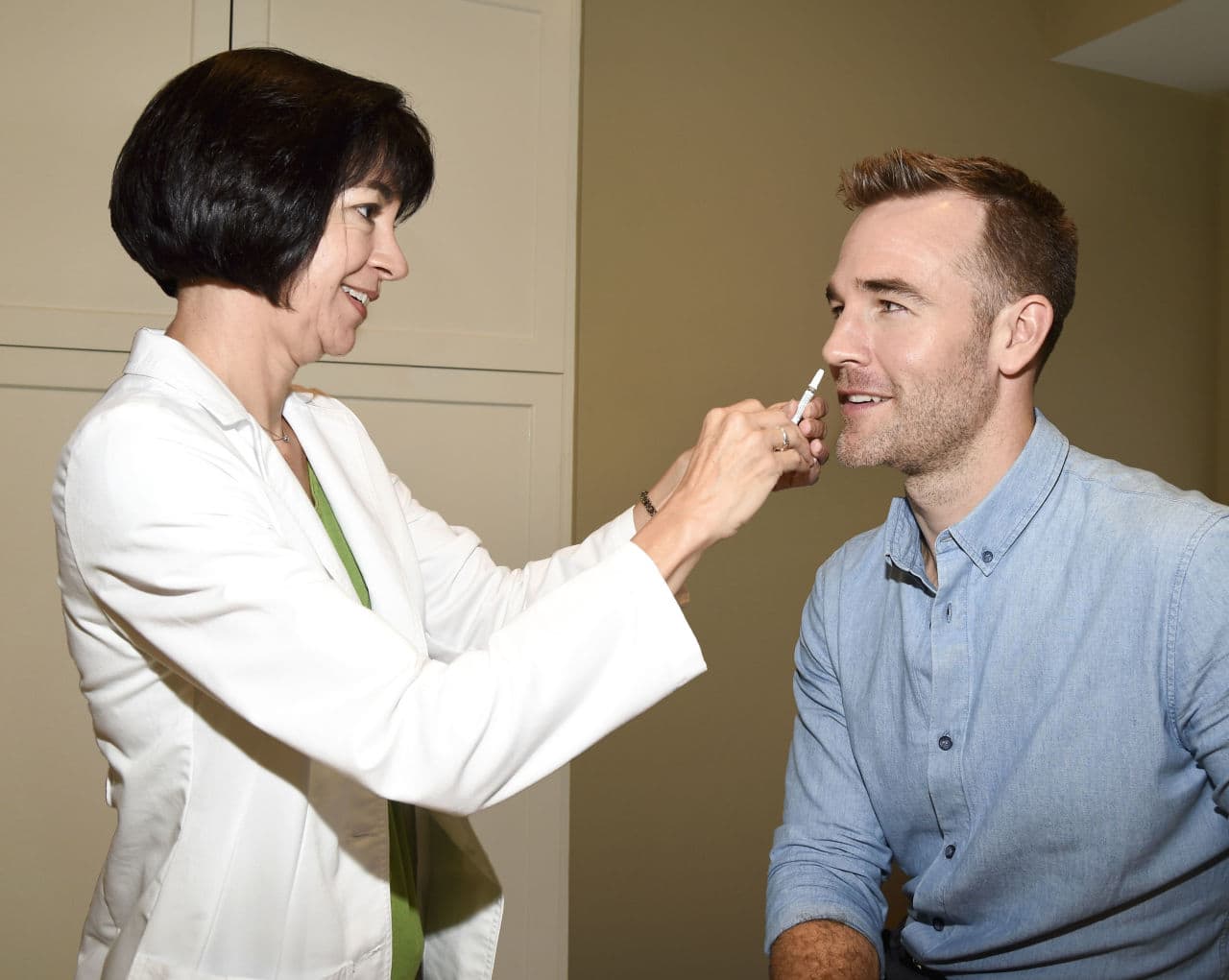Advertisement
Sorry, Intriguing Studies Are No Excuse To Skip The Flu Shot This Year

By Alison Bruzek
Warning: You may be tempted to use some of the following information to rationalize skipping your annual flu shot. But in fact, you're out of luck. The message from public health authorities is absolutely clear: roll up your sleeve (or prepare your nasal passages) and get your flu vaccine.
“Just do it now, would be my advice,” said Dr. Larry Madoff, director of epidemiology and immunization at the Massachusetts Department of Public Health. “There’s always a benefit to getting the flu vaccine.”
Granted, you wouldn't be entirely crazy for thinking otherwise, thanks to recent headlines like these:
From USA Today last winter: “Flu shots only 23% effective this season.”
From CBS News: “Flu vaccine might be less effective in statin users.”
And on the front page of The Boston Globe earlier this month: “Repeated flu shots may lose potency.” (The story came from STAT, the Globe’s new online sibling publication covering medicine and bioscience, which used the headline, “Getting a flu shot every year? More may not be better.”)
The STAT story reports in its third paragraph that public health officials “still believe an annual vaccination is better than skipping the vaccines altogether.” But its primary emphasis is on a “growing body of evidence” that with flu vaccines, “more may not always be better.”
As one mother wrote on Facebook, “[It’s] very upsetting for someone like me, who has had their kids vaccinated every year.”
The message is confusing, even for someone well aware of the recommendation from public health authorities that everyone over six months old should get a flu vaccine unless there’s a medical reason to avoid it. Flu is no joke: It kills thousands, and probably tens of thousands, of Americans a year, the CDC says.
So what to do if you're still worried?
To begin with, listen to the author of the study, Dr. Edward Belongia, an epidemiologist at the Marshfield Clinic Research Foundation. The STAT story notes he still strongly encourages everyone to get their flu vaccine.
As Dr. Belongia told me about his study: “At this point there really aren’t any implications for the general public.” Rather, it’s a jumping-off point for future research. Furthermore, the study was presented as a poster in October at an infectious diseases conference; it hasn't yet been through the rigorous peer review required for publication in a scientific journal.
The study itself is intriguing — it concluded that children who had gotten a flu shot in two previous years, for a specific strain of the flu, were more likely to contract that flu than kids who had just been vaccinated for the first time.
But Dr. Madoff at the Massachusetts Department of Public Health said the idea that vaccines may bring diminishing returns isn't new. In fact, it's been around since the 1990s. And the bottom line, he said, is that “the return may diminish but there’s always a benefit to getting vaccinated.”
Or as a spokesperson for the CDC said, "This is an interesting new finding and CDC will be looking into it further. For now, the CDC recommendation for vaccination remains unchanged."
The CDC recommends a flu vaccine every year because the body’s immune response prompted by vaccination declines over time, and flu viruses change from year to year. So “if you have been vaccinated recently, there’s still clearly a benefit to getting a flu vaccine this year and every year,” Dr. Madoff said. It’s true, he said, that “the additional benefit you gain isn’t as great if you’ve been vaccinated previously, but there’s still clearly a benefit.”
One of Dr. Madoff's potential explanations for why flu vaccines could have a diminishing effect is that antibodies to the flu you already have may bind to portions of the new flu vaccine and make them less active. Or it could be that if you're already immune to one strain of the flu and get another vaccine, instead of creating new antibodies for the new strain of flu, the vaccine instead boosts the antibodies for the older strain.
But “these are theories,” he said, “and I don’t think we really fully understand what’s accounting for this phenomenon.”
There’s reason to hope the question will someday be moot, though. Research is under way on a “universal” flu vaccine that would work for all strains and so there would no longer be a need for annual shots.
For now, if your head is still spinning from the back and forth, the best answer is to follow the CDC's guidelines for the flu vaccine and let the scientists debate until they come to a consensus. Until they do, the guidelines won't change.
Still not persuaded? Dr. Madoff has some good flu news for this year: The flu vaccine cocktail is better than ever. Last year, the flu vaccine strains that were chosen ended up being a poor match for the strains that were circulating. This year, he says, the match is much closer.
Wade Roush, a longtime technology journalist and outreach officer for the Program in Science, Technology, and Society at MIT, said he cringed a little when he saw the STAT headline, out of concern that it could reinforce the views of people who are already suspicious of vaccines.
“We know that thanks to the media ruckus over the measles vaccine, and the fraudulent idea that it might cause autism, there are still clusters of parents who don’t get their kids vaccinated,” he said. So when reporting on vaccines, a frame that doesn’t feed into the myths about vaccines is especially crucial.
“The risk of contracting influenza and getting sick or dying if you don’t get vaccinated is the same as it ever was, and you can still lower that risk drastically by getting vaccinated,” Roush said. That’s the context a story on any vaccine especially needs.
And if you're finally convinced, there’s still time. The flu vaccine takes a few weeks to have an effect, Dr. Madoff said, but the peak of the season isn’t until January/February. And consider: In Massachusetts, the Department of Public Health now ensures that all flu vaccines for children under the age of 18 are free.

- Further reading from NPR's Shots blog: Worried about the flu shot? Let's separate fact from fiction